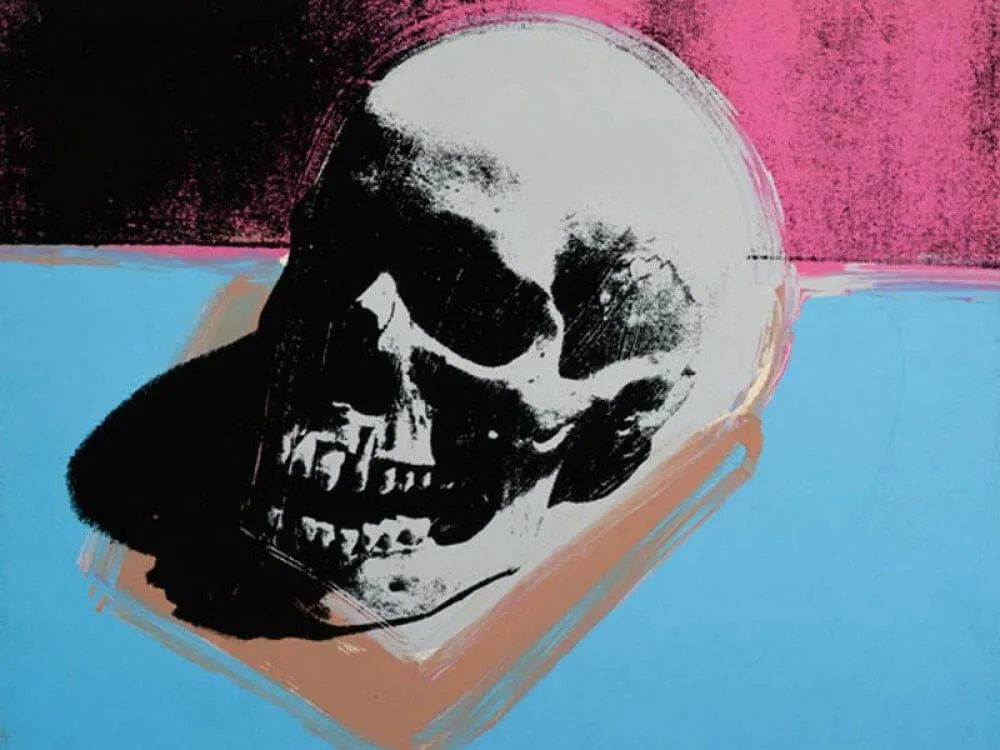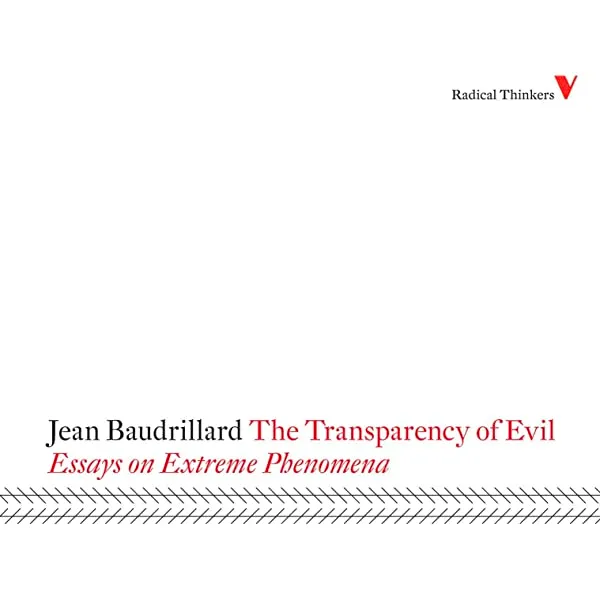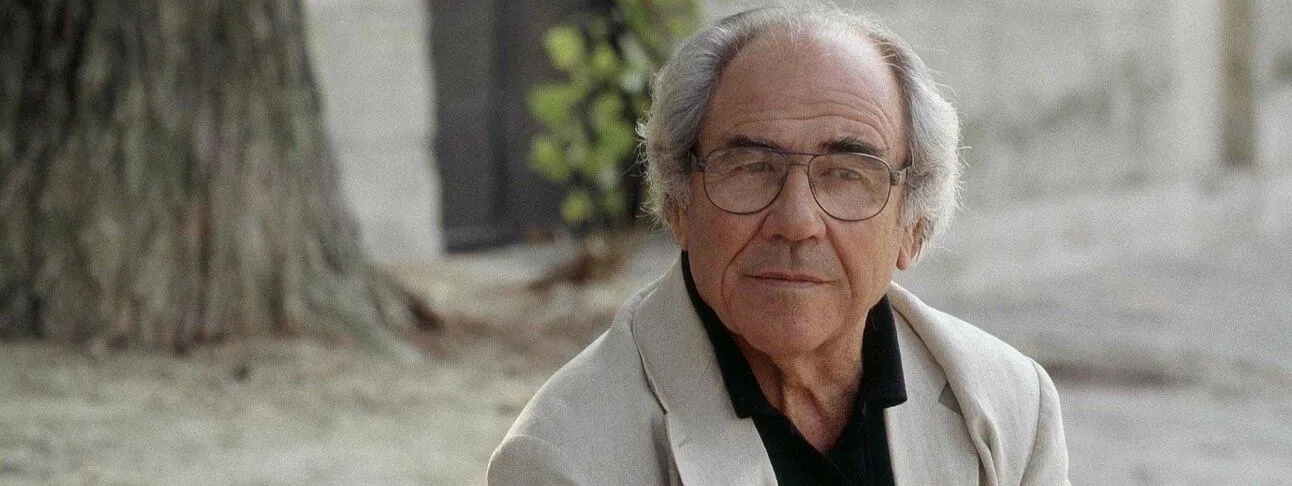
Everything has already been liberated.
That’s one of the main ideas in a famous essay, After the Orgy, by Jean Baudrillard.
Democracy, women’s liberation, the liberation of the unconscious, the liberation of art, etc. Modernity has been an orgy.
But then what do you do, after everything has been made available to you? That’s the meaning of Baudrillard’s famous question:
“What are you doing after the orgy?”
Simulation and Circulation
Today, we don’t suffer oppression or repression but the peculiar malady of not knowing what to do after all of our constraints have been lifted.
According to Baudrillard, our natural instinct—after the orgy—is to continue simulating the orgy.
We pretend that we need new objects, new symbols, and new ideas. And we accelerate the production of such things not because we lack them but precisely because we already have them and we’re stupefied by the void of already having them.
Where simulation reigns, Baudrillard uses the prefix hyper.
We are no longer realizing new desires. We are hyper-realizing our desires through simulation.
Liberation has put formerly fixed objects and symbols into circulation, a key concept for Baudrillard. In modernity, all objects and symbols are in orbit, where one is free to trade and substitute each for each, to whatever degree one can get away with.
Liberation is not what we hoped for because the endless circulation of things is not satisfying. Everything becomes indeterminate and uncertain. This does not naturally sit well with us. It makes us agitated and anxious. We have learned, only too late, that a well-defined and ordered social universe might have been a better fit for the creatures we are.
 “After the Orgy” is the lead essay in The Transparency of Evil (1990)
“After the Orgy” is the lead essay in The Transparency of Evil (1990)
In modernity, nothing dies. Things just fizzle into ever-thinner simulations.
In modernity, nothing is reflected. Symbols no longer trace back to real things. Symbolic virality, for example, in the form of a viral tweet, does not indicate the viral growth of value; it doesn’t cash out anywhere in the real, even if it does sometimes cash out in the equally unmoored realm of money.
Baudrillard even suggests that value itself may be impossible given the centrifugal nature of value today, where value goes in a million different directions without any reference to anything other than itself. Here one should think about the long tail and reality entrepreneurship.
Baudrillard’s perspective on value—which is obviously Marxian—speaks to why today we struggle to differentiate the beautiful and the ugly, true and false, good and evil, and so on.
“Good is no longer the opposite of evil… Each value or fragment of value shines for a moment in the heavens of simulation, then disappears into the void along a crooked path that only rarely happens to intersect with other such paths. This is the pattern of the fractal and hence the current pattern of our culture.”
When things in the world can propagate even after they’ve fundamentally detached from their initial idea or purpose, the result is a kind of cancer in the culture.
He gives the example of sexuality. At first, we had sexual liberation. People can do whatever they want sexually or express their gender however they want. Yet in practice, human reproduction has become a matter of technoscience and machines. We become sexless genetic codes and sex becomes the “linear and sequential reproduction, cloning or parthenogenesis of little celibate machines”.
Today, everything wants to be everything. Everything is political and everything is aesthetic, and so on. Because everything tries to be everything, nothing can be anything. People substitute words with no limit, and it makes no difference.
Nullius in Verba
A crucial point to note is that the cognitive and lexical chaos of modernity is not a surprising accident but rather the explicit demand and goal of modernist revolutionaries from Luther to Warhol. Each step along the way, we asked for more latitude in the usage of words.
We thought we could figure out our own answers better than the established authorities in charge of all the words. When we said nullius in verba, we thought we were unleashing the truth, and perhaps we were, but we were also unleashing the unlimited circulation of everything else, too.
Figures like Steven Pinker, the Effective Altruism crew, and the Progress Studies crowd have not come to terms with the nature of modernity. The systemic cognitive and cultural obstacles we face in the wealthy Western countries are *rooted in reason—*as a careful reading of the best “postmoderns” will reveal.
We thought we could conquer Nature with Reason. Baudrillard’s critique is not that this modernist dream is naive, or unjust, or racist, or sexist. Baudrillard’s critique is that modernism succeeded. Modern rationalists got what they wanted, but now they are the ones who are dissatisfied.
The modernist and rationalist wing of the “Anti-Woke” crowd would do well to study Baudrillard: In their constant lamenting of Woke moralism, and their clarion calls for rational progress, they seem genuinely unaware that Woke moralism is rational progress for those who adopt it. To endorse any superior tribunal that could say or enforce otherwise would be the pre-modern, traditionalist gesture par excellence.
“The glorious march of modernity has not led to the transformation of all values as we once dreamed it would, but instead to a dispersal and involution of value, whose upshot for us is total confusion. The impossibility of apprehending any determining principle, whether of an aesthetic, a sexual or a political kind.”
On the question of the worker’s revolution, Marx could not have been more wrong.
The proletariat was never able to negate itself.
In fact, Baudrillard says, it was the bourgeoisie and Capital that negated themselves.
Now, we do live in a classless society, and the proletariat really has disappeared, along with the class struggle as a whole. Marx’s fatal error was that he did not understand how Capital would transpoliticize itself. He did not see that Capital would launch itself into an orbit of infinite circulation, beyond its infamous contradictions.
Marx did not realize that capital could become autonomous and “totalize the world in its own image.” Baudrillard makes similar arguments about art and sexuality, but I’m most interested in his discussion of communication and information. Baudrillard says that the seeming triumph of communication and information in the digital world is a kind of substitute satisfaction for the utter failure of the aspiration, which we once had, to transcend social alienation. Because we are still alienated, we communicate like mad, proliferating social networks and submitting to homogeneity.
Social communication today is, therefore, hyper-social. It’s simulated sociality in an era when we’ve broken down all walls on sociality, and everyone can be friends with everyone, and everyone can say everything.
“All this communication is basically nothing but a rigid script, an uninterrupted fiction designed to free us not only from the void of the television screen, but equally from the void of our own mental screen whose images we wait on with the same fascination.”
Post-orgy cope is not restricted to the Left. Those who today clamor for “Free Speech” are not repressed; they are simulating their own repression, fighting for something that has already been won (encoded generously in the First Amendment and ample common law). They don’t really want Free Speech; they want the direction, courage, and conviction to exercise the freedom of speech they already have. But lacking these things, they pretend to be freedom fighters, according to a template they learned from movies.
They pretend they are fighting for Fee speech when we already have it, precisely because we are anxious that we have it and we don’t know what to do with it.

If You Get the Chance to Win, Take It
Baudrillard doesn’t leave us with many positive suggestions, but I will leave you with one closing thought.
I tend to think the path forward was hiding in his discussion of value. Recall that, according to Baudrillard, value as such is in question today, because value creation goes in many different directions at all times. What is truly valuable never seems to integrate across all the million vectors of purported value generation.
The only productive way to interpret such a situation is to make a bet on what’s ultimately valuable and then construct it with the full force of modernity’s liquid and uncontainable affordances.
For instance, in my case, it looks to me like the Christian inheritance is the most impressive, durable, and ultimately true system of values we’ve yet to hear about. Though I’m the first to admit that the postmodern condition forecloses any naive, high-modernist vision of re-imposing divine monarchy, one can still ask:
Given some leap of faith about ultimate values, how can I harness the chaotic world of unmoored objects and symbols in its direction? How can I generate and distribute new objects and symbols to bend all of the world’s circulating detritus into the orbit I believe in?
In the words of the band The Wonder Years, as cited by George Hotz in the first print issue of Return magazine:
“The whole world’s full of losers. If you get the chance to win, take it.”
Perhaps this is the right answer to Baudrillard’s question, and a promising path for reconstituting a meaningful life in the desert of the hyper-real.